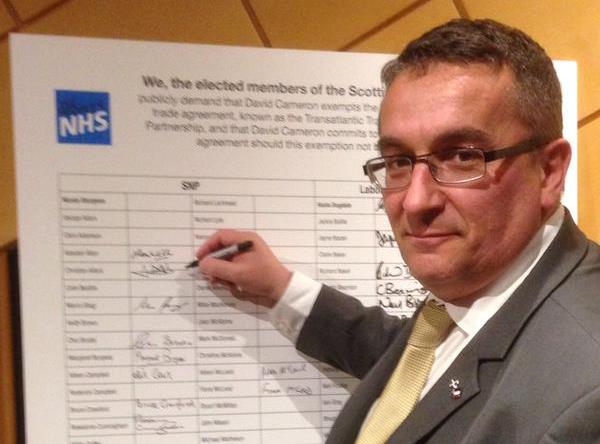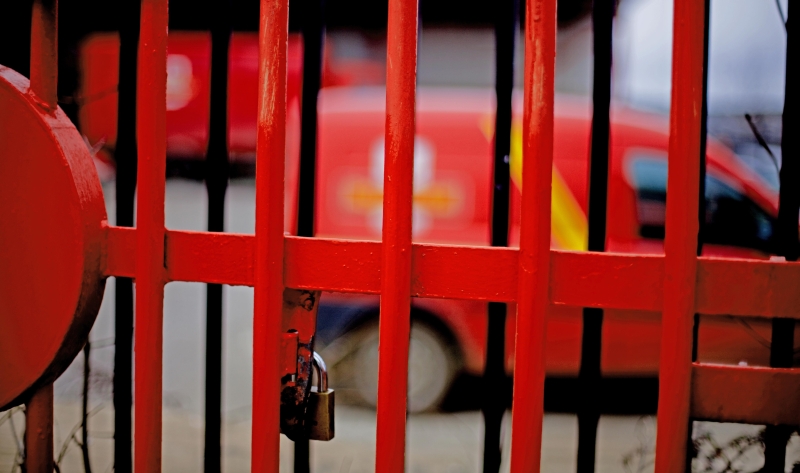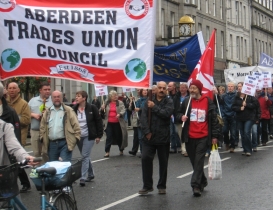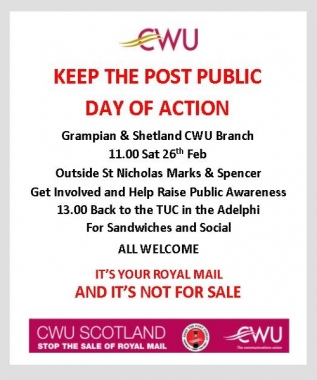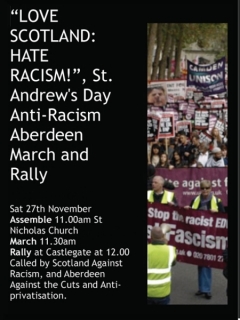Voice’s Old Susannah takes a look over the past week’s events in the ‘Deen and beyond. By Suzanne Kelly.
It was a very warm welcome at the wonderful Blaikiewell’s when I visited over the weekend; it is a great spot. There is much to do to ensure its future, but certain figures have pledged to help, and hopefully this great sanctuary will carry on.
BrewDog launched its new ‘Fake’ Lager, which was a huge success. I had a nice chat with Alicia Bruce, and hope to have an interview with her on Aberdeen Voice shortly.
News-wise Spoiler Alert: Mrs Thatcher died; North Korea threatens to wage war, and horse meat tainted with the carcinogen ‘Bute’ are in the food chain, despite previous EU assurances this wasn’t the case.
That the EU got something wrong is obviously the surprise of the week. Worse still, Psy is releasing a ‘serious’ music video, and Kelly Brook accidentally went around with her dress unzipped.
Astonishingly, there was a photographer to hand.
Faced with all these overwhelming developments, and as a mark of something or other, please be advised that this column will be a bit light on the sarcasm this week. Normal services resume will resume shortly.
On the national scene, Kent Police’s Youth Police and Crime Commissioner Paris was forced to resign after some of her old tweets came back to haunt her, throwing huge shadows on her role. Some one-hundred and sixty people went out for the really cool, hip youth police job, but she was the best candidate. Makes you wonder.
Despite making drug-related and racist tweets prior to taking the job on more than a few occasions, Paris is not a racist, just someone who makes racist remarks to show off. Confusing her with a racist is an easy mistake to make; apparently all the young people are showing off by trying to look like bigots.
Thankfully nothing like that could ever happen in Aberdeen. It is not as if there are any would-be youth leaders involved in campaigns at present organising demos, holding meetings, and getting involved with politicians and academics who have previously made any dubious internet postings. I’m certain our local political parties and august educational institutions would never get involved with anyone with a dubious history.
As Ms Brown learnt, things never really get deleted from cyberspace. Can you imagine what a web of intrigue would surround such a revelation here?
In life as in death, Margaret has split opinion
There was no shortage of colourful news close to home, either. I knew our politicians had great talent, but I hadn’t appreciated that faith healing was one of their skills.
We had the one who was able to make money disappear right before our eyes; we named a street after him for a bit.
We have HoMalone who can grow trees on a severely polluted hill. To this goddess a herd of deer were sacrificed (it’s just as well she’s sure those trees will grow: I think more than a few people will be slightly cross if they don’t). She also could make things disappear, like the people who previously voted Lib Dem.
We also had a councillor who was very gifted with young people, serving on the Youth festival, and kindly offering lifts to any young people who he found walking the streets late at night. But faith healing. Wow.
In life as in death, Margaret has split opinion and bitter division erupts. Champagne corks popped in the streets of Glasgow; others mourned her and placed flowers in locations associated with her.
Old Susannah is, as you can imagine, not in the Thatcher fan club. But I won’t be dancing on her grave, either.
The first person who told me of her death was from a mining family; I can well understand the hatred she inspired in many. The privatisation of Britain and the selling of the family silverware largely started with her – but others eagerly took up her mantle and mantras. It’s said that Tony Blair was a sleeper agent of Thatcher’s, and I for one can’t disagree.
She’s gone; many of her destructive policies live on.
There are those who practically want her beatified, and refuse to hear any word against her. There are those who’d disrupt her funeral.
Gene Roddenberry put forth all sorts of ideas about equality of races and sexes
Once things quieten down, I hope people will increase their focus on the many things that are going wrong under current local, regional and national governments, and start demanding change.
There is a saying ‘only a fool would fight in a burning house’ – and all things considered, I think we might all be in a burning house together.
This ‘burning house’ proverb is, er, a ‘Klingon’ saying from Star Trek. Trek’s creator Gene Roddenberry put forth all sorts of ideas about equality of races and sexes, applying wit and logic to problems, science and fact over superstition, and of creating a better world. One of the episodes had a sub-plot based around the simple benign philosophy of ‘Can I Help?’
I wonder what he’d make of the goings-on today. He cast people from all races, sexual orientations and religions in his original series.
On that note, it’s time for a few timely definitions
Handbag: (1. Eng noun) – a satchel or case carried by women filled with personal effects; (2. Eng verb) – for a woman to suddenly and/or violently carry out a ferocious, withering verbal attack often while carrying a purse.
Well, the Thatch did give us a new word. BBC presenters, politicians, her cabinet members and advisers – none were immune from a handbagging from Maggie.
Grown men wept; this was the late 70s and early 80s, and in those somewhat less PC days, our first female PM would rage unbridled abuse on those who dared to look at her oddly, let alone challenge her, in a fashion which would be cause for legal action today.
The handbag in question held state documents and god knows what else. Likewise, several latter-day women politicians here in the Deen were known to keep interesting items in their handbags, but that is another matter.
The BBC’s Oliver Lee-Stone has an excellent article cataloguing some of the attacks launched by PM Thatcher on her colleagues, cronies and journalists; many of whom lived in absolute terror of this form of abuse. In it he quoted Kenneth Baker:-
“”When Maggie was really up against it, she would put her handbag on the cabinet table and take out a well-crumpled paper. This was the brief that came from no-one knew whom – a friend, or someone who had rung her up. It was unpredictable, sometimes illuminating, at others weird, sometimes an interesting new light, at others a worthless piece of gossip. Whenever this happened, the cabinet secretary would pale, and the minister would raise his eyes to the ceiling.”
Alas! Ironwoman was herself handbagged, in a moment which gave birth to another expression.
A Belgrano Moment: (Mod English phrase) to tell politicians ‘not in my name’ and to call them to account
While the men around her might have quaked with terror, Diana Gould was not having it. When Ms Gould participated in a BBC question and answer session with Maggie, it was handbags at dawn.
The Falklands war raged; the Belgrano was sunk – while in an exclusion zone. Margaret T was being interviewed; Sue Lawley, who seems to have been unlucky that day, was given the modern equivalent of the Rosencrantz and Guildenstern treatment – she was fired. Taking questions from callers, Margaret Thatcher met her match in Diana Gould, Geographer of the Royal Navy.
Maggie held her ground – the Belgrano sinking was the right thing to do. Gould pulled the rug from under Thatcher’s feet. Gould wasn’t having it, and sparks and fur flew. Words fail – the only thing to do is to visit this page, and watch the incident again.
- Comments enabled – see comments box below. Note, all comments will be moderated.
